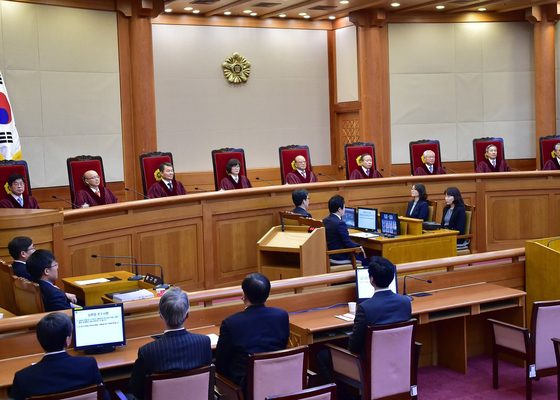A decision by South Korea’s Constitutional Court to dissolve an opposition political party could have chilling consequences for freedom of expression and association in the country, said Amnesty International.
The court found that the Unified Progressive Party (UPP) violated the country’s “fundamental democratic order” after the government accused the party of supporting North Korea. The ruling also disqualified all sitting UPP lawmakers from representing the party.
“The ban on the UPP raises serious questions as to the authorities’ commitment to freedom of expression and association,” said Roseann Rife, East Asia Research Director at Amnesty International.
“The dissolution of a political party can have far-reaching consequences and should only be taken with the utmost restraint.”
The Constitutional Court considered the case against the UPP at the request of the government. This was the first such request from a South Korean government since the end of dictatorial rule in 1987. The last time a party was disbanded was in 1958.
The ruling comes off the back of an increasing number of cases in recent years in which South Korea’s vague National Security Law (NSL) and other laws have been used to suppress dissent and alleged support for North Korea.
“The government is increasingly using national security as a guise to repress political opposition and curtail freedom of expression,” said Roseann Rife.
The Supreme Court of South Korea is expected to rule soon on the final appeals of seven members of the UPP convicted in 2013 for alleged crimes of ‘inciting an insurrection’ and violating the NSL.
“The space for freedom of expression has been vastly diminished in recent years. The authorities are using the NSL to suppress dissent and persecute individuals with opposing political views,” said Roseann Rife.
“Security concerns must never be used as an excuse to deny people the right to express different political views.”


